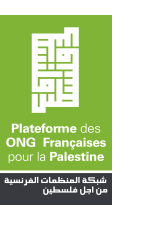


Il ne faut pas que la France se limite à une application partielle ou aménagée des lois européennes avec l’Etat israélien.
Paris, le 10 septembre 2013,
Monsieur le Ministre,
Lors de votre visite en Israël en aout dernier, vous avez déclaré devant la presse que « nous devons vérifier si les lignes directrices n’ont pas créé une situation qui n’était pas voulue », en faisant référence aux lignes directrices adoptées par la Commission européenne en juillet 2013.
Les récentes dispositions européennes excluent l’attribution de subventions, ou de prix ou instruments financiers à des « entités israéliennes établies dans les territoires occupés par Israël depuis juin 1967 ou aux activités qu’elles y déploient » ainsi que le bénéfice des instruments financiers de l’UE à des « entités israéliennes qui opèrent dans les territoires occupés, que ce soit dans le cadre de l’UE ou autrement ». Votre ministère avait alors déclaré que ces lignes « mettent ainsi en application la position politique constante de l’Union européenne, exprimée à de nombreuses reprises par le Conseil affaires étrangères, selon laquelle Israël doit - conformément au droit international - être clairement distingué des territoires occupés ».
La Plateforme des ONG françaises pour la Palestine considère que l’exclusion des colonies israéliennes des programmes européens est un développement important et concret pour le respect des droits des Palestiniens et dans le sens d’une politique européenne plus en conformité avec ses propres déclarations.
Nous sommes aujourd’hui inquiets de vos propos qui font suite à de fortes oppositions en Israël en août dernier. Sont en jeu le soutien financier de l’UE à des projets israéliens, et les conditions à remplir par tout nouvel accord, dont, dans l’immédiat, la participation de l’Etat israélien à « Horizon 2020 », le huitième PCRD de l’Union européenne pour la période 2014-2020. Israël est le seul pays non européen participant à « Horizon 2020 ».
Les négociations avec Israël en septembre 2013 sur la délimitation territoriale du programme cadre « Horizon 2020 » sont la première occasion importante d’appliquer les engagements pris par l’Union européenne.
Toutefois votre déclaration nous fait craindre que la France se limite à une application partielle ou aménagée des lois européennes avec l’Etat israélien. Cela réduirait à néant les efforts de la diplomatie européenne et la crédibilité de l’UE sur le terrain.
Nous vous demandons que les dispositions des lignes directrices soient explicitement mentionnées dans le programme Horizon 2020 et strictement et entièrement appliquées.
Claude Léostic,
Présidente de la Plateforme des ONG françaises pour la Palestine
La Plateforme des ONG françaises pour la Palestine est également signataire la lettre envoyée à ce sujet à Mme Catherine Ashton, haute représentante de l’Union européenne pour les affaires étrangères et la politique de sécurité, par la Coordination des Comités Palestine Européens dont elle est membre.
LETTER IN ANTICIPATION OF EU FOREIGN MINISTERS MEETING ON 6 SEPTEMBER 2013
It has come to our attention that the subject of the guidelines which the European Commission published on 19 July last concerning cooperation with Israeli entities in the occupied Palestinian territories may be discussed during the informal meeting of the EU Foreign Affairs Council on September 6th.
The publication caused strenuous objections on the part of the Israeli government, which is now conditioning the signing of an agreement on scientific cooperation and other future agreements with the EU on a change in the wording of the Guidelines concerning settlements to appear in the agreement, and on the renouncement to the full implementation of the conclusions of the Council of Foreign Affairs of 10 December 2012, stating that .
“The European Union expresses its commitment to ensure that – in line with international law – all agreements between the State of Israel and the European Union must unequivocally and explicitly indicate their inapplicability to the territories occupied by Israel in 1967, namely the Golan Heights, the West Bank including East Jerusalem, and the Gaza Strip."
One of the subjects on the agenda of the Foreign Ministers’ informal meeting will probably be the answer that the EU should make to this Israeli request.
We wish to make it clear why the EU’s response should not be favourable.
First, the Guidelines and the conclusions of the Council of Foreign Affairs are in full conformity with international law, which the EU is bound to respect in accordance with Articles 3(5) and 21(1) of the EU Treaty. Israel’s occupation of Palestine and the Israeli government’s policy of establishing settlements in occupied Palestine have been condemned on numerous occasions by the UN Security Council and the International Court of Justice as well as by the quasi unanimity of the international community. Allowing Israeli entities established in the settlements or having activities there to benefit from financial assistance provided by the EU would amount to recognizing the legality of Israel’s settlement policy and rendering aid and assistance to its maintenance and pursuance.
Second, Israel has already concluded agreements with other countries that explicitly acknowledge that they do not apply to the occupied territories. Thus in letters exchanged on the occasion of the agreement of 27 September 1972 with the USA to establish the US-Israel Binational Foundation, Israel expressly acknowledged that projects sponsored by the Foundation could not be conducted in these territories or relate to subjects primarily pertinent to such areas. Similarly the eligibility policy of the German-Israeli Foundation (GIF), established in 1986 by an agreement between the science ministries of both governments, specifies that the GIF can support only projects conducted within the geographic areas under the jurisdiction of Israel prior to 5 June 1967. In view of these precedents, the present Israeli government’s refusal to acknowledge the same limitation in its agreements with the EU is incomprehensible.
Third, contrary to the Israeli government’s objection, the Guidelines do not in any way prejudge the issue of the negotiations with the Palestinians. As stated by EU High Representative Catherine Ashton on 19 July 2013, it has been the EU’s long held position that it will only recognize changes to the pre-1967 borders that are agreed by all the parties to the Middle East Peace Process (MEPP). On 10 December 2013 the Council expressed the EU’s commitment to ensure that all future agreements with Israel must unequivocally and explicitly indicate their inapplicability to the occupied Palestine territory. The Guidelines do nothing more than confirm these statements. If the EU were to defer to Israel’s request, this would not only represent a U-turn in its stated policy - thereby putting in question the EU’s credibility - but would also jeopardize the MEPP.
Fourth, the Guidelines are limited to the strict minimum required to attain their objective :
– they do not apply to public authorities at national level ;
– they do not apply to natural persons ;
– Israeli entities having activities in a settlement are not excluded from receiving grants or prizes as long as their activities within the framework of such grants or prizes are carried out within Israel’s pre-1967 borders.
Thus the frequently-heard criticism that they constitute an excessive and disproportionate sanction against Israel is without any merit.
Finally, what is at stake is that the territories occupied by Israel since June 1967 are not part of Israel, and all settlements are illegal. Under international law, the UE has the obligation to take this fact into account. Excluding certain Israeli entities from EU funding simply fulfils that obligation. There is no reason why the EU should make funds available to Israeli entities if these funds are to be used in a manner putting in danger the EU’s policy of advancing the Middle-East Peace Process.
Any step backward would be a complete wreckage of EU credibility, and the renouncement to push the international law as the basis to any peace process.
For all these reasons, we urge the participants in the forthcoming meeting to uphold the Guidelines and the conclusions of the Council of Foreign Affairs of December 2012, and to insist that all future agreements with Israel should contain provisions accurately reflecting their content
Yours sincerely,
…………….
Articles associés
 4 novembre 2024
4 novembre 2024Lettre ouverte au Ministre des Affaires étrangères - Présence du ministre israélien Bezalel Smotrich à Paris le 13 novembre Colonisation Droit international
 22 octobre 2024
22 octobre 2024Colonies, les chiffres-clés 2024 Colonisation Produits des colonies Economie et développement
 21 octobre 2024
21 octobre 2024[Edition spéciale] Gaza, une guerre de l’information Analyses politiques et géopolitiques Promotion de la paix et de la non violence La question palestinienne en France Entreprises et droits humains Cour Pénale Internationale Solidarité internationale Défenseur.e des droits de l’Homme Torture et mauvais traitements Histoire/analyse politique Economie et développement Détention administrative Prisonniers palestiniens Positions officielles de la France Aide internationale Liberté d’expression Diplomatie Impunité Crime de guerre Colonisation Bande de Gaza Commerce solidaire Hamas Droit international Apartheid Médias Journalisme
Campagne en cours
Dernières publications
 10 décembre 2024
Déclaration : Tous les États parties au Statut de Rome doivent coopérer pleinement avec la CPI dans l’exécution des mandats d’arrêt
Cour Pénale Internationale
Impunité
Société (Palestine/Israël)
Bande de Gaza
Crime de guerre
Guerre
10 décembre 2024
Déclaration : Tous les États parties au Statut de Rome doivent coopérer pleinement avec la CPI dans l’exécution des mandats d’arrêt
Cour Pénale Internationale
Impunité
Société (Palestine/Israël)
Bande de Gaza
Crime de guerre
Guerre
 10 décembre 2024
Communiqué - Émission des mandats d’arrêt de la Cour pénale internationale (CPI)
Cour Pénale Internationale
Impunité
Société (Palestine/Israël)
10 décembre 2024
Communiqué - Émission des mandats d’arrêt de la Cour pénale internationale (CPI)
Cour Pénale Internationale
Impunité
Société (Palestine/Israël)
> Toutes les publications










